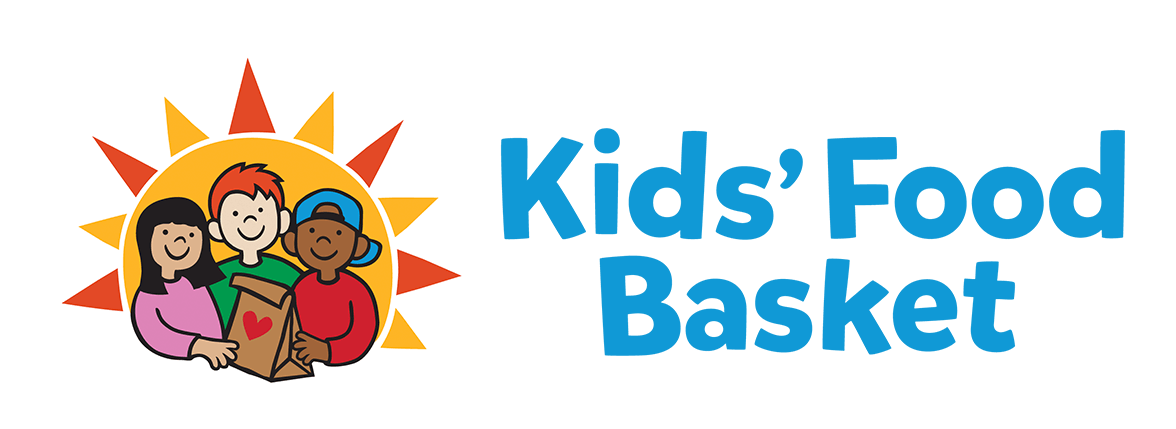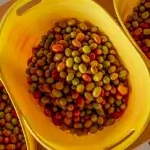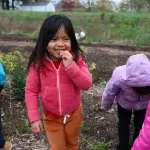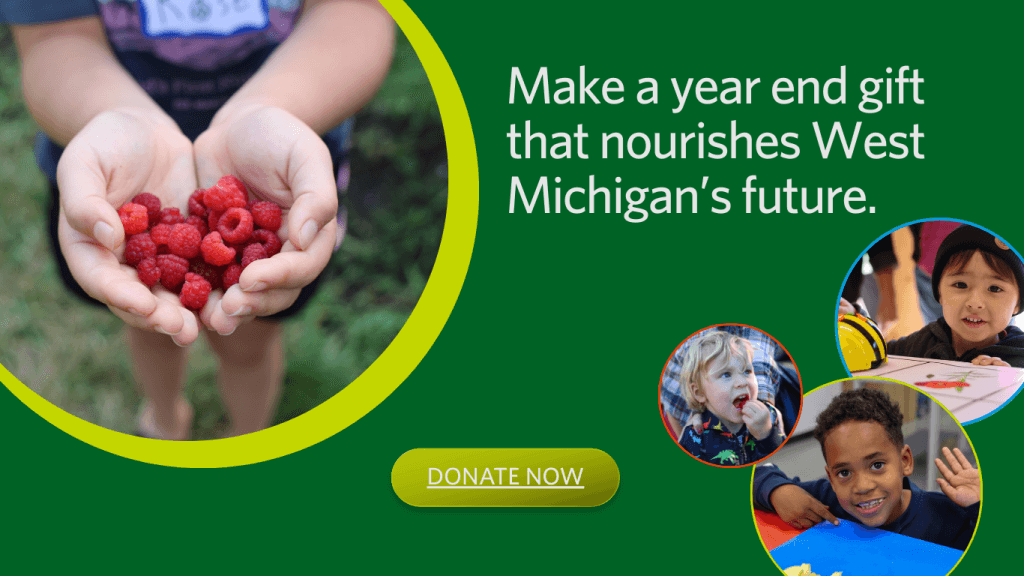
Nourishing the community also means nurturing the earth.
At Kids’ Food Basket, our mission is to nourish kids to reach their full potential. A huge part of that mission is also ensuring that the Earth we all collectively live on is nourished so that future generations have a healthy land to thrive in.
On the Kids’ Food Basket Farm, we practice sustainability in a variety of ways. Our aim is to be the best stewards of the land we use and do our part to take care of the planet. Through our educational programming, we also teach children, families and volunteers how to welcome sustainability practices into their own lives through gardening, eating healthy and conscience efforts to produce less waste.
Here are just a few of the ways that Kids’ Food Basket is prioritizing sustainability every day.
 KFBees
KFBees
Honeybees are an integral part of our Mother Earth, they produce one of the most amazing natural products EVER – raw honey. Raw honey (especially local) is anti-viral, anti-inflammatory, anti-bacterial and helps mitigate outdoor allergies in humans. Raw honey never goes bad and is incredibly beneficial for hundreds of reasons…and thanks to our honeybees on the KFB Farm, better known as the #KFBees, we now add thousands of honey sticks to healthy meals!
We have on average over 700,000 bees on the Farm, and harvested around 1,209 lbs of honey. KFBees also:
- Help naturally pollinate our fruits and vegetables.
- If lost as a pollinator, could lead to lower availability of crops and wild plants that provide essential micro-nutrients for human diets, impacting health and nutritional security and risking increased numbers of people suffering from vitamin A, iron and folate deficiency.
Cover Crops
After the harvest is over from the summer and fall, we plant a cover crop over every acre of our farmland. This crop is called Rye, which will grow in cold weather, so it is perfect for Michigan winters.
- Cover crops protect our soil’s integrity.
- If we were to not cover the soil, there is risk that rain could erode and wash away all of the top soil, which holds a lot of the important nutrients that help our crops grow.
- The root systems of the cover crop develop and help with erosion and keeping the soil in place until the next year’s harvest.
- The roots of the cover crops fix nitrogen into the soil, which boosts crop growth.
Composting 
The Kids’ Food Basket staff all participate in composting at the Kent County headquarters by bringing in leaves, yard waste, food scraps, cardboard and other materials. When ready, the compost pile will turn into soil that is rich in nutrients and will be used on the Kids’ Food Basket Farm.
- Compost will be used to amend the soil.
- Composting helps create less waste going to landfills
- At KFB, we use a “set it and forget it” approach because nature makes the best soils!
A No-Till Section of the Farm
New this season, A couple of acres of the Kids’ Food Basket Farm will be left as a no-till section. This means that no diesel-powered equipment, such as tractors will be used to tend to the soil. In traditional farming, when you till the land, the tractor flips the soil, which releases a large amount of carbon into the atmosphere. Therefore, no-till practices help eliminate the amount of carbon that is released into the air.
- No-till farming also creates a more healthy soil because the tractors are not disturbing all of the microbiology that is going on in the soil.
- Soil needs the growing fungus, bacteria and insects to all be working to do the good things that they bring to the soil.
- By no-tilling, the roots from the cover crops pull carbon from the air and down into the soil, so it is reversing global warming.

Volunteer Manpower Decreases Amount of Equipment Use
We are grateful and so fortunate to all of the amazing volunteers that have spent time on our Kids’ Food Basket Farm. Lots of hands who can help us plant, pick and harvest allow us to spend less time using our diesel-powered tractors and therefore less emissions are put into the air. Last year, through the help of our volunteers, we harvested over 147,000 servings of fresh vegetables and fruits on the KFB Farm.
Planting Native Plants
Kids’ Food Basket is committed to planting more native plants into the land we own in order to help sustain the natural ecosystem that Mother Nature intended. With the addition of more native plants, there will be more flowers for our KFBees, which increases our pollination power and helps create more healthy plants to harvest. More pollinators means more healthy growing vegetables and fruits that can go to the hands of the children and families who need them.
Hydroponic System
Not only does our hydroponic system allow us to continue growing fresh, healthy produce all year round in the Kids’ Food Basket greenhouse, but the system itself increases our sustainability. The system recycles the water that is used for the plants. It also uses about 90% less water than traditional farming. And as Michiganders all know, fresh water is our greatest resource on the planet and we must do all that we can to preserve it.
There are tons of opportunities to volunteer on the Kids’ Food Basket Farm and see these sustainability practices in action. Visit VolunteerHub for upcoming shifts and join us in caring for our Earth!





